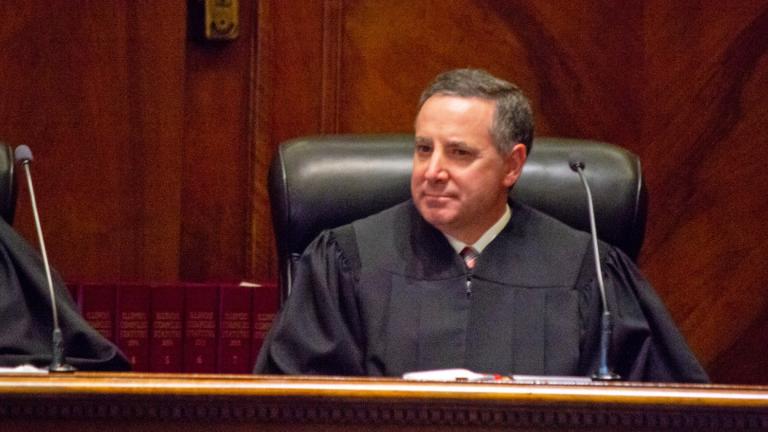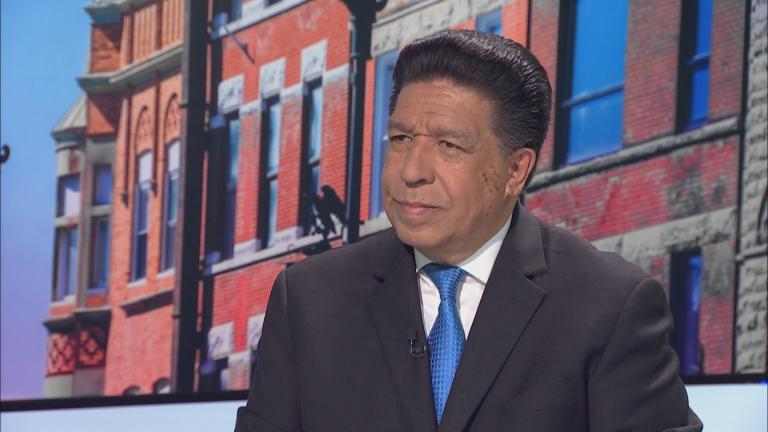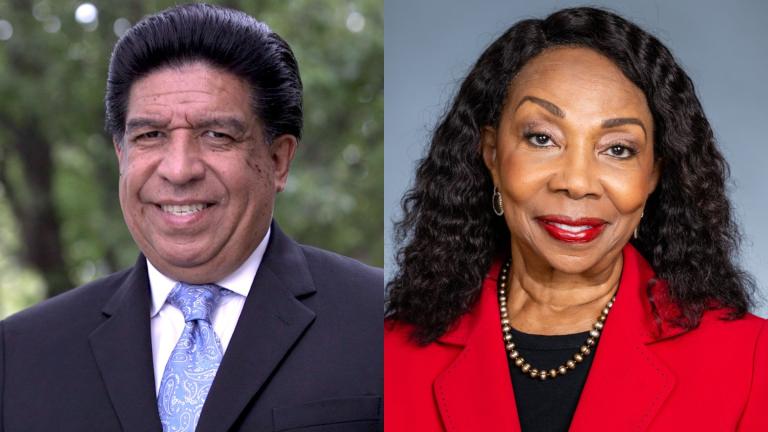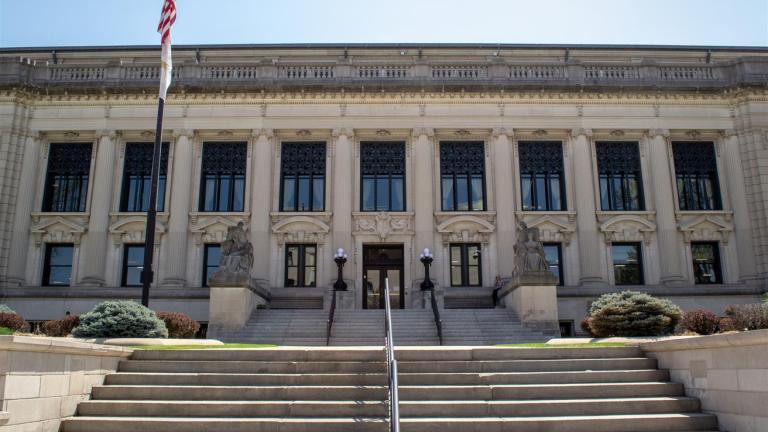The fate of whether cash bail will be eliminated in Illinois is now in the hands of the state’s Supreme Court justices, who Tuesday heard arguments about the constitutionality of the pretrial detention provisions of the 2021 criminal justice overhaul titled the SAFE-T Act.
Per the law, Illinois was supposed to do away with cash bail at the start of 2023, but just before the measure was set to go into effect, a Kankakee County court ruled the pretrial bond provisions unconstitutional.
Attorney General Kwame Raoul and House Speaker Emanuel “Chris” Welch were among those in the Springfield audience for the oral arguments Tuesday.
The lawsuit over cash bail pits the state’s Democratic governor, attorney general and legislative leaders against roughly half of Illinois’ state’s attorneys, as well as county sheriffs.
Both sides can agree on this much: The justices’ decision on the case will have major ramifications on the future of the criminal justice system in Illinois.
The plaintiffs fighting the law want the court to weigh two main arguments.
The first argument is that the legislature can’t just abolish monetary bail because the state constitution references “bail.” Kankakee County State’s Attorney Jim Rowe told justices such a change requires a constitutional amendment, as he said the state did in 1982 and 1986 when voters approved bail changes.
“The simple way for the legislature to accomplish all of these reforms: Take the question, put it on a ballot, propose it to the people, let ‘em vote on it in an election,” Rowe said. “It quite simply is that easy. In this instance, this time, they’ve not only tried to expand the list of non-bailable offenses, but they have all but abolished the condition of monetary bail as a surety, and they tried to do so through mere legislation. They literally tried to drive the reform by filing 764 pages of directions at 4 a.m. in the middle of the night, in the dark, with an hour to get there. And unfortunately, they took a few unconstitutional turns along the way.”
Plaintiffs also argue the General Assembly violated the separation of powers, meaning lawmakers can’t unilaterally remove a tool like money bail from the judiciary’s toolbox and direct judges as to when they cannot detain someone pretrial. (The law allows defendants to be detained when accused of certain violent crimes but forbids pretrial detention for other crimes.)
“The judiciary has an inherent judicial authority to set bail, to deny bail, to control the proceedings before it, because it is necessary to maintain the administrative functions of the court, to maintain an orderly process of criminal procedure,” said Will County assistant state’s attorney Alan Spellberg. “Under the provisions that have been adopted in the SAFE-T Act and the follow-up amendatory provisions, every judge in the state of Illinois is prohibited from considering monetary components of pretrial release. And, in fact, in some instances, the judges are prohibited from holding a defendant or from imposing bail even if they believe that there are no set of conditions which are available to safely ensure the defendant’s return for trial.”
Deputy Solicitor General Alex Hemmer, arguing on behalf of the state in defense of the law, said critics didn’t prove their case and that the Supreme Court should therefore reverse the lower court’s decision, which would mean no more cash bail in Illinois.
When it comes to the separation of powers issue, he said the plaintiffs took too expansive a view of judicial power and too narrow a view of the legislature’s scope.
“The legislature is charged with making big decisions about the way that things should operate in this state, and that is the kind of fundamental point here,” Hemmer said. “The legislature has made exactly that decision about the way that people should be treated while they are pending trial and presumed innocent. There is nothing in the constitution that prohibits that decision.”
Hemmer argued that the General Assembly has a long history of setting public policy that governs what happens when a defendant is awaiting trial. He said overturning major provisions of the SAFE-T Act would jeopardize years of law that serve as the scaffolding of Illinois’ sentencing procedures, such as laws that set mandatory minimum sentences.
“It would grant plaintiffs an extraordinary windfall to find the statute facially unconstitutional, and strike it down as to all parties in its entirety just because there might be some hypothetical case in which a court would want to detain a low-level misdemeanant and lacked statutory authority to do so,” Hemmer said.
Most of the court’s justices frequently interrupted lawyers on both sides with questions. Rowe, for example, got out a single sentence, about why he brought the lawsuit — he said he was compelled to contest the law due to his state’s attorney’s “oath and my interest of public safety” — before chief justice Mary Jane Theis interjected to question whether state’s attorneys and sheriffs have standing to bring forward the suit.
Rowe answered by saying that state’s attorneys are in “unique positions” because they are the only officers who can file petitions to deny bail. Rowe said that to wait for a victim — who would have more definite standing to sue — would force state’s attorneys to “sit on our hands and wait for a victim’s constitutional rights to be violated or a defendant’s constitutional rights to be violated. I go to work every single day to prevent that very injury.”
The SAFE-T Act passed with only support from Democratic lawmakers.
The Supreme Court has five judges who ran as Democrats and two who ran as Republicans.
The court took the case (Case No. 129248) on an expedited schedule but gave no hint as to when justices will issue an opinion.
Follow Amanda Vinicky on Twitter: @AmandaVinicky







